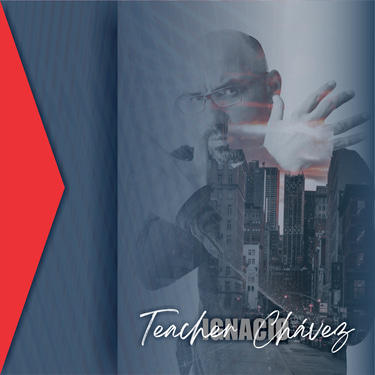Peak – Anders Ericsson & Robert Pool (C2 Level)
ULTIMATE READING
Teacher Ignacio Chávez
9/9/20254 min read


In Peak, Anders Ericsson and Robert Pool explore the concept of human performance, arguing that mastery is not the result of innate talent, but of deliberate practice—a structured, intentional approach to learning and skill development. They challenge the traditional view that exceptional abilities are largely determined by genetics, asserting instead that anyone, with the right methods and consistent effort, can achieve remarkable expertise in any field.
🧠 Deliberate Practice: The Core of Expertise
The central thesis of Peak is the idea of deliberate practice, a concept that goes beyond mere repetition of a task. Unlike traditional practice, which often involves mindless repetition, deliberate practice requires individuals to engage in activities that are purposefully designed to stretch their abilities. It involves stepping outside of one’s comfort zone and focusing on specific areas that need improvement.
Ericsson and Pool emphasize that deliberate practice is effortful and focused, demanding concentration, self-awareness, and feedback. Through this type of practice, individuals can re-wire their brains, forming new connections that enhance performance. The book asserts that, through continuous refinement and systematic practice, the limits of human potential are much greater than commonly believed.
🗣️ "If you do not push beyond your limits, you will never discover how far your limits can actually go."
⚡ The Role of Mental Models and Focused Attention
Another crucial idea explored in Peak is the development of mental models, which are internal representations that help individuals organize and process complex information. Mental models are constructed over time through focused practice and serve as cognitive frameworks that enable individuals to solve problems more efficiently and perform tasks more effectively.
To develop these models, focused attention is essential. When practicing deliberately, one must engage with the task at a deep level, paying close attention to the nuances of the activity. This intense focus allows for the optimization of mental models, which can be constantly updated and refined with each practice session. In this way, progress is not linear, but exponential, as improved models lead to more efficient performance.
🗣️ "The more you focus, the sharper your mental models become. With a well-developed model, you begin to see the world in a new way."
💪 The Importance of Motivation and Mindset
Ericsson and Pool argue that motivation is a critical driver of deliberate practice. Mastery requires an ongoing commitment, especially when faced with obstacles or plateaus. Motivation is sustained by an individual’s belief in their ability to improve, a belief that must be nurtured through a growth mindset.
The authors emphasize that intrinsic motivation—the desire to engage in an activity for the satisfaction it provides—plays a more significant role than extrinsic rewards. A deep passion for the activity and a strong internal desire to improve are what drive consistent practice. Moreover, motivation fuels the resilience required to overcome setbacks, a vital element in the pursuit of mastery.
🗣️ "Mastery is a journey, not a destination. The motivation to keep going comes from within and from the passion you bring to the process."
🌱 Talent and the Myth of Innate Ability
A central argument in Peak is the debunking of the talent myth. Ericsson and Pool assert that natural talent accounts for a small fraction of expertise. Rather than relying on inborn traits, true mastery is achieved through deliberate practice over time. This perspective is revolutionary, as it democratizes the potential for high-level performance. It shifts the focus from genetic predisposition to structured, intentional effort, arguing that mastery is within reach for anyone who is willing to dedicate themselves to the process.
The authors also introduce the concept of “the 10,000-hour rule”, which has been widely misunderstood. While the idea is that expertise takes roughly 10,000 hours of practice, the key takeaway is that deliberate practice—not just any practice—must be at the core of those hours. It’s not enough to simply accumulate hours; what matters is the quality and focus of the practice.
🗣️ "Talent is a myth. What matters is the quality of your practice, your commitment, and your ability to challenge yourself."
✅ Feedback: The Catalyst for Growth
Feedback is another essential element in the process of mastery. In Peak, feedback is presented as the catalyst for improvement. Feedback helps individuals identify where they are going wrong and provides the guidance necessary for making corrections. The authors suggest that feedback is most effective when it is specific, timely, and constructive, enabling the practitioner to immediately apply the insights to their next practice session.
Furthermore, effective feedback fosters a mindset of continuous improvement, where failure is viewed not as a setback, but as an opportunity to adjust and refine one’s approach. In this way, feedback accelerates growth by shortening the cycle of trial and error, allowing practitioners to optimize their performance more rapidly.
🗣️ "Feedback is the bridge between where you are and where you want to be. Without it, progress slows, and improvement is stunted."
🏆 The Path to Mastery
Ultimately, Peak presents the process of developing expertise as a continuous journey, one that requires commitment, perseverance, and a willingness to embrace discomfort. Mastery is not a fixed destination, but a dynamic, evolving process. It is accessible to anyone who is willing to put in the time and effort, regardless of their starting point.
The book concludes by urging readers to take responsibility for their own learning. Mastery is within your control, and with the right mindset and strategies, anyone can push the boundaries of what is possible. Ericsson and Pool remind us that no one is limited by their natural talent—we are all capable of far more than we often believe.
🗣️ "The only limits to your abilities are the ones you place on yourself. Challenge them, and you’ll find that you can achieve far more than you ever imagined."
In conclusion, Peak provides a profound insight into the nature of human performance and skill acquisition. By emphasizing deliberate practice, focused attention, motivation, and feedback, the book offers a blueprint for reaching the highest levels of expertise. Its core message is clear: mastery is available to anyone, and the path to greatness is paved through consistent, deliberate effort and a commitment to lifelong learning.
ZOOM CLASSES
ULTIMATE PROGRAM
Tuesday and Wednesday 7:00 PM - 8:30 PM
ULTIMATE PROGRAM
Saturday 8:30 AM - 10:00 AM


